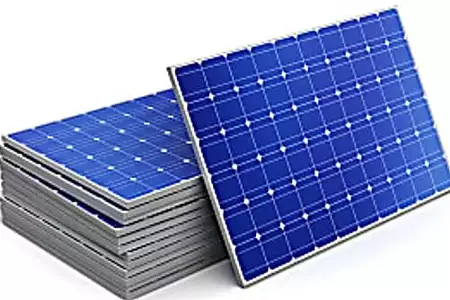Nigeria’s debt to China increased from $3.93bn as of June 30, 2022, to $4.73bn as of June 30, 2023, showing an increase of $800m in one year.
It is an increase of 20.36 per cent from the second quarter of 2022 to Q2 2023, according to an analysis of the external debt stock data from the Debt Management Office.
Although the Federal Government has been chiefly secretive about the terms of the agreement of its China loans, the DMO has made some statements on them in the past.
In a statement in June 2020, the DMO said, “The total borrowings from China of $3.121bn as of March 31, 2020, are concessional loans with interest rates of 2.5 per cent per annum, tenor of 20 years and grace period (moratorium) of seven years.”
According to the DMO, the terms are compliant with the provisions of Section 41 (1a) of the Fiscal Responsibility Act, 2007.
In addition, the low interest rate reduces the interest cost to the government while the long tenor enables the repayment of the principal sum of the loans over many years.
In a document titled ‘Status of Chinese loans as at September 30, 2021’, the DMO disclosed that 15 projects were funded by the loans acquired from China. These projects range from water supply, power generation, railways, airport terminals, and communication to agricultural processing.
The first loan project was for the Nigerian Communications Satellite project with $200m agreed on January 12, 2006. This was a five-year loan that matured on June 29, 2018. Nigeria successfully paid off the loan, which had an interest rate of three per cent per annum, leading to the payment of $40.02m as the interest rate.
The second loan was for the Nigerian national public security communication system project with $399.50m agreed on December 20, 2010, and disbursed.
The third loan was for the Nigerian railway modernisation project (Wu- Kaduna section) with $500m agreed on December 20, 2010, and disbursed.
While the fourth loan was for the Abuja light rail project with $500m agreed on November 7, 2012, and disbursed, the fifth loan was targeted at the Nigerian Information and Communication Technology infrastructure backbone project with $100m agreed on January 5, 2013, and disbursed.
The sixth loan was meant for four airport terminals’ expansion projects (Abuja, Kano, Lagos, and Port Harcourt) with $500m agreed on July 10, 2013, but $455.28m was disbursed, which is 91.06 per cent of the agreed amount.
The seventh loan was for the Nigerian Zungeru hydroelectric power project with $984.32m agreed on September 28, 2013, but only $518.24m was disbursed, 52.65 per cent of the agreed amount.
The eighth loan was for the Nigerian 40-parboiled rice processing plants project (Federal Ministry of Agriculture and Rural Development), with $325.67m agreed on April 26, 2016, but nothing was disbursed.
The ninth loan was for the Nigerian railway modernisation project (Lagos – Ibadan section), with $1.27bn agreed on August 18, 2017, but only $759.84m was disbursed, which is 17.50 per cent of the agreed amount.
The 10th loan was targeted at the rehabilitation and upgrading of the Abuja-Keffi-Markurdi road project with $460.82m agreed on August 18, 2017, but only $80.64m was disbursed, which is 59.96 per cent of the amount agreed.
The 11th loan was meant for the Nigeria supply of rolling stocks and depot equipment for the Abuja light rail project with $157m agreed on May 29, 2018, but nothing was disbursed.
The 12th loan was for the Nigeria Greater Abuja water supply project with $381.09m agreed on May 29, 2018, but nothing was disbursed.
The 13th loan was for the Nigerian Four Airport Terminal Expansion Ancillary Project with $183.62m agreed on December 27, 2019, but nothing was disbursed.
The 14th loan was for the Nigerian Four Airport Terminal Expansion Incremental Project with $208.90m agreed on December 27, 2019, but nothing was disbursed.
The 15th loan was for the Nigerian ICT Infrastructure Backbone Phase II Project with ¥2.3bn agreed on September 5, 2018, but only ¥480.40m was disbursed.
Only the 15th loan project was presented in Chinese Renminbi Yuan.
The document also showed that there are varying interest rates, which range from 2.5 per cent to three per cent, and are not solely fixed on 2.5 per cent as the DMO claimed in its statement in June 2020.
Regarding repayments, The PUNCH observed that within the period under review, Nigeria serviced Chinese loans with $263.14m.Related News
- US, China working towards Biden, Xi meeting
- D’Tigers edge US, China, win autumn tourney
- A’Ibom seals three banks over N228.6m debt
However, data from the external debt service reports showed that Nigeria is likely not required to make any payments in Q2 as no debt service payment was recorded for Chinese loans in Q2 of 2022 and 2023.
With growing concerns that Nigeria may forfeit assets in the event of a loan default, the Director-General, DMO, Patience Oniha, in 2021, assured Nigerians that the loans were largely concessional, as no national asset was tagged as collateral.
The PUNCH recently reported that the United States said China had the potential to influence the Nigerian government through Chinese loans.
This was stated in the Integrated Country Strategies document by the US Department of State, obtained by The PUNCH.Sponsored Stories

Lagos: Remote Jobs 2023 (See Salaries)Sponsored | Online Jobs | Search Ads

Lagos: Smart Beds Clearance Sale: Prices In Mexico Might Surprise YouSponsored | Smart Beds In Mexico

Uncover the Hidden World of Slimming SecretsSponsored | DietDrops

Affordable Solar Panels (See Prices By Clicking Here)Sponsored | Solar Deals
The document was originally approved on April 6, 2022, but was reviewed and updated on June 23, 2023.
According to the document, China offered sub-prime financing for various infrastructure projects in the country.
The Corporate Finance Institute described a subprime loan as a loan offered to individuals at an interest rate above prime, who do not qualify for conventional loans.
The document read in part, “Meanwhile, China offers sub-prime financing for a range of infrastructure projects, with the potential to add unnecessarily to Nigeria’s debt burden and increase Chinese influence over the Nigerian government.”
The PUNCH reported in January 2022 that a Chinese company, Chinese Civil Engineering Construction Corporation, handled the majority of railway projects in Nigeria worth over $25.51bn (N10.5tn), according to the United States-based Fitch Solutions’ latest report on Nigeria’s railway system.
The report, titled ‘Nigeria Rail: Near-term focus on Northern region with long-term upside for Southern projects’, said Chinese financing had enabled CCECC to handle most rail projects in the country.
The report, however, listed other companies that were major players in the Nigerian railway sector.
It read in part, “China Civil Engineering Construction Corporation has dominated the railway construction sector in Nigeria, supported by Chinese financing.”
The breakdown of the top rail projects handled by CCECC showed that the approved Lagos-Calabar coastal railway project covering 1402km was awarded to the Chinese company for $11.10bn.
Also, the Abuja-Itakpe-Warri rail line project with a contract value of $3.90bn, sponsored by China Railway Construction Corporation and EXIM Bank of China, was awarded to CCECC, Julius Berger and Sinohydro Corporation, another Chinese company, alongside General Electric. The project is still at the planning stage.
Although the Federal Government had sought loan facilities from Chinese lenders to implement several infrastructural projects, China became reluctant to give Nigeria more loans.
In 2021, a Minister of Transportation, Rotimi Amaechi, alleged that China was becoming sceptical of borrowing Nigeria money because of a National Assembly probe of the Federal Government’s ability to repay its loan.
Earlier in March 2023, it was reported that the China Exim Bank rejected Nigeria’s $22,798,446,773 loan request approved by the National Assembly.
However, the Nigerian government and the Chinese government have amended their relationship as the Chinese government expressed its commitment to refinance and complete the Abuja-Kano and Port-Harcourt-Maiduguri railway projects.
A statement signed by the VP’s Senior Special Assistant on Media and Communications, Stanley Nkwocha, said: “President of Peoples Republic of China, Xi Jinping, pledged while responding to requests by President Bola Tinubu, who was represented by Vice President Kashim Shettima, at a bilateral meeting with the Chinese leader in Beijing.”
The statement was titled, ‘At 3rd Belt and Road initiative forum: China commits to refinancing, completing Abuja-Kano, Port-Harcourt-Maiduguri railways’.
Since the launch of the projects, China has yet to release funds for the two major railway projects in Nigeria, mainly due to cutbacks and commitments.
China had agreed to provide 85 per cent financing for constructing the Abuja-Kano and Port-Harcourt-Maiduguri railway projects. In comparison, Nigeria , which had the duty of paying the balance of 15 per cent, paid its part of the funding from the project’s inception through appropriations.
The Chinese President, who received the Nigerian delegation led by Vice President Shettima at the Peoples Building in China, pledged increased investment in Nigeria’s power generation and digital economy.
Jinping, however, called for the protection of Chinese nationals working in Nigeria.

